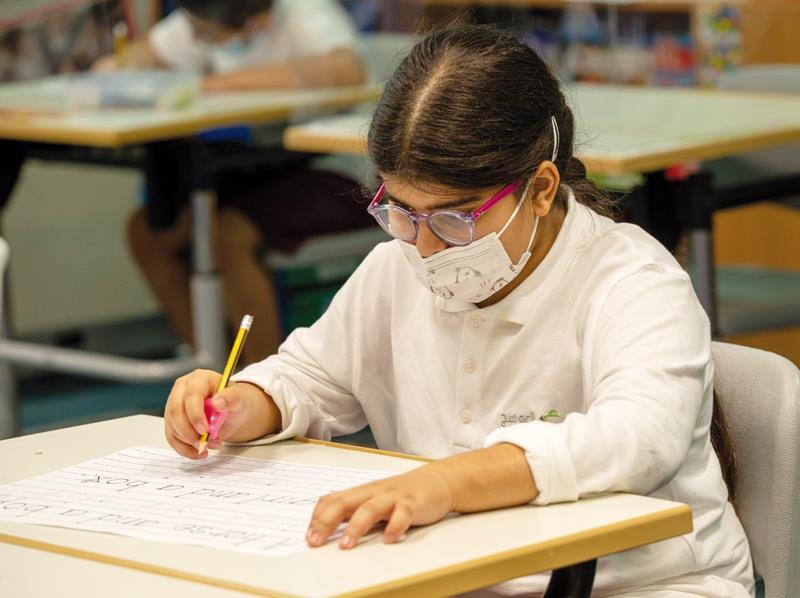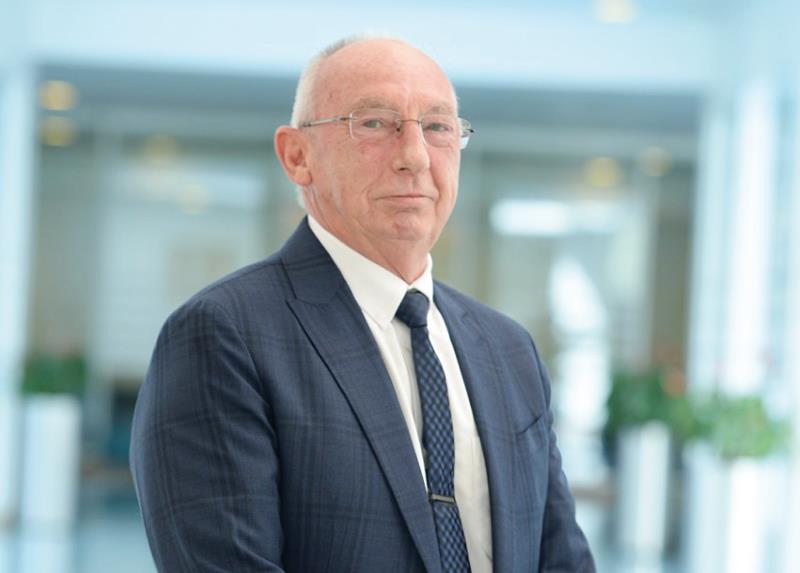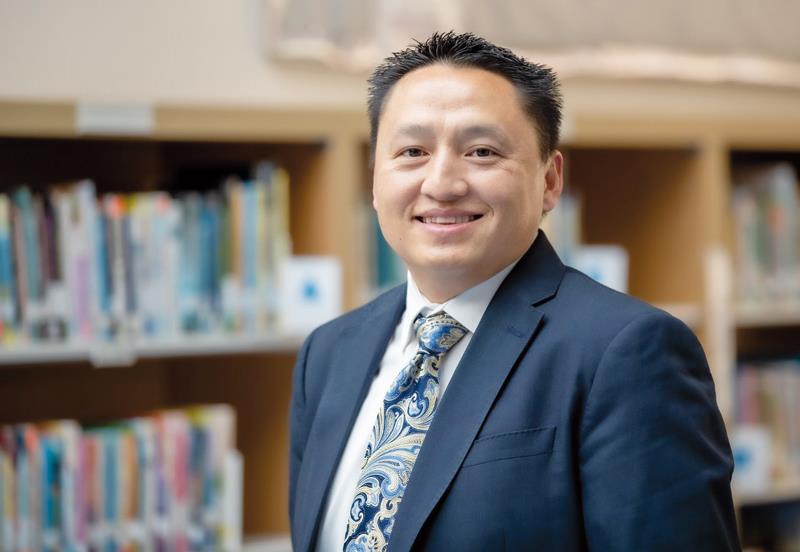(MENAFN- The Peninsula)
Qatar Foundation's (QF) Pre-University Education (PUE) has grown from a single school to a network of mainstream and specialized schools, as well as institutes that continuously rethink and refine education standards and policies.
Together, they make up a ecosystem of learning designed to be diverse enough where every child can explore their curiosity, creativity, and individuality, and identify how they can be more resilient and build a better future for Qatar.
From IB schools to academies specialising in STEM, music, heritage, special needs, and leadership education, QF's diverse range of schools cater to the specific needs of children and their families.
QF's PUE schools lead the way in developing and applying innovative learning practices. QF Schools provide students with an education that is rooted in their culture, recognizes how they learn, and cultivates a sense of responsibility to their community and to humanity. QF schools include and accept students of all levels, including by providing specialised education for those with Autism and special needs. QF's PUE schools teach students the Arabic language and its value and engage parents and make them partners in their child's learning journey.

PUE also ensure that a QF school is a place where every child is encouraged, understood, and given the opportunity to find their place in the world. In line with its vision to lead a“Learning Journey” within the community, QF incorporates special high-quality education into mainstream education through personalized and constantly evolving curricula tailored to meet the learning needs of students while, providing an environment of knowledge hence empowering students to be the leaders of the future while nurturing their talents.
Functioning under QF's PUE, Awsaj Academy is the only school of its kind in Qatar and one of only a handful of schools which has been established to work with students who have demonstrated aptitude in certain areas while facing academic challenges in others.
A child or young person has Definitions of Special Educational Needs (SEN) if they have a learning difficulty, a defined learning need, or a disability which requires modifications and accommodations to their school program.
At Awsaj Academy a student is believed to have a learning difficulty, learning need or disability if they: demonstrate a significantly greater difficulty in learning than most peers the same age; or demonstrate symptoms resulting from trauma that has directly impacted a student's ability to learn or have a disability which prevents or hinders them from accessing their education without significant adult support.
Special educational needs and provisions can be considered as falling under four broad areas such as, communication and interaction, cognition and learning, social, mental and emotional health and sensory and or physical.
All Awsaj Academy students have difficulties that fit clearly into one of these areas; some have needs that span two or more areas; for others the precise nature of their need may not be clear at the outset. It is therefore important to carry out ongoing assessment of each student and their situation during their placement at Awsaj to make an accurate assessment of their needs.

Mark Hughes, Director, Awsaj Academy
Communication and interaction
Awsaj Academy students may have difficulties in one or more of the areas of speech, language and communication. These children and young people need help to develop their linguistic competence in order to support their thinking, as well as their communication skills. Specific learning difficulties such as dyslexia or a physical or sensory impairment such as hearing loss also lead to communication difficulties.
Those with speech, language and communication needs (SLCN) cover the whole ability range. They find it more difficult to communicate with others. They may have problems taking part in conversations, either because they find it difficult to understand what others say or because they have difficulties with fluency and forming sounds, words and sentences. It may be that when they hear or see a word they are not able to understand its meaning, leading to words being used incorrectly in or out of context and the student having a smaller vocabulary. It may be a combination of these problems. For some students difficulties may become increasingly apparent as the language they need to understand and use becomes more complex.
“Our students with an Autism Spectrum Disorder (ASD), including Asperger's Syndrome and Autism, have difficulty in making sense of the world in the way others do. They may have difficulties with communication, social interaction, and imagination. In addition they may be easily distracted or upset by certain stimuli, have problems with change to familiar routines or have difficulties with their coordination and fine-motor functions,” said Mark Hughes, Director, Awsaj Academy.
Cognition and learning
“Our students with learning difficulties will learn at a slower pace than other young people and may have greater difficulty than their peers in acquiring basic literacy or numeracy skills or in understanding concepts, even with appropriate differentiation. They may also have other difficulties such as speech and language delay, low self-esteem, low levels of concentration and under-developed social skills,” said William Vue , Secondary Principal at Awsaj Academy
It is widely researched that students with a learning difficulty, especially those students with a diagnosis of autism, are at increased risk of developing a mental health problem. They may need additional support with their social development, self-esteem and emotional well-being.
“Our students with severe learning difficulties (SLD) have significant intellectual or cognitive impairments and are likely to need support in all areas of the curriculum. They may have difficulties in mobility and co-ordination, communication and perception, and the acquisition of self-help skills. Our students with SLD are likely to need support to be independent. These students require a high level of adult support, to meet their educational needs,”
“At Awsaj, those students who have severe learning difficulties, significant communication and language difficulties as well as high sensory processing needs may access the curriculum in an individualized and student-centred way, with a key focus on functional life skills,” added Vue
A child or young person with a Specific Learning Difficulty (SLD) may have difficulty with one or more aspects of learning. This includes a range of conditions such as dyslexia (difficulties with reading and spelling); dyscalculia (maths); dyspraxia (co-ordination) and dysgraphia (writing),” added Mark Hughes, Director, Awsaj Academy.

William Vue, Secondary Principal at Awsaj Academy
Social, Mental and Emotional Health
For some Awsaj students, difficulties in their emotional and social development can mean that they require additional and different provision in order for them to achieve.
“Our students who have difficulties with their emotional and social development may have immature social skills and find it difficult to make and sustain healthy relationships. These difficulties may be displayed through the student becoming withdrawn or isolated, as well as through challenging, disruptive or disturbing behavior,” said William Vue, Secondary Principal at Awsaj Academy.
A wide range and degree of mental health problems does require special provision to be made. These can manifest as problems of mood (anxiety or depression), problems of conduct (oppositional problems and more severe conduct problems including aggression), self-harming, substance abuse, eating disorders or physical symptoms that are medically unexplained.
“Many of our students may have other recognized disorders such as attention deficit disorder (ADD), attention deficit hyperactive disorder (ADHD), attachment disorder, autism or pervasive developmental disorder, an anxiety disorder, or a disruptive disorder,” said Mark Hughes, Director, Awsaj Academy.
Sensory / Physical Needs
“We have a number of students with a range of sensory and physical difficulties across our ability range. Many of our students will require minor adaptations to the curriculum, their study program or the physical environment,“said Ms. Kerry Girod-Fedha – Elementary Principal.
Students with a visual impairment (VI) or a hearing impairment (HI) may require specialist support and equipment to access their learning. Students with a Multi-Sensory Impairment (MSI) have a combination of visual and hearing difficulties, which makes it much more difficult for them to access the curriculum or study program than those with a single sensory impairment. Some children and young people with a physical disability (PD) require additional on-going support and equipment to access all the opportunities available to their peers.
“A number of our students have complex medical conditions requiring ongoing medical treatment and nursing support. Some students will have life limiting conditions,” added Hughes.
MENAFN28102021000063011010ID1103062921
Legal Disclaimer:
MENAFN provides the information “as is” without warranty of any kind. We do not accept any responsibility or liability for the accuracy, content, images, videos, licenses, completeness, legality, or reliability of the information contained in this article. If you have any complaints or copyright issues related to this article, kindly contact the provider above.